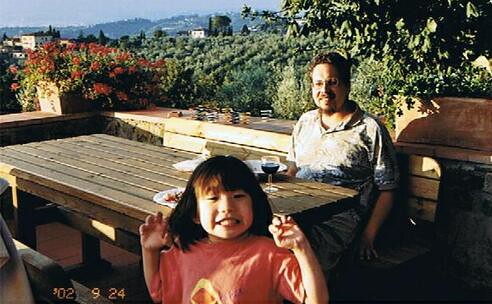|
|
🦋 Katha-upanishad
Naciketas replied to Yama: "All these things you're talking about are ephemeral, O Death; they will only last until tomorrow, for their power is born of the senses. Even the longest life is but fleeting. So keep your horses, your festivals, and answer my question." The Katha Upanishad is the first one in the collection I'm reading. (Totally uncertain as to whether there is a standard ordering or a standard selection -- I definitely get the impression that this book is not all the upanishads there are.) It is a dialogue between Naciketas, the young son of Gautama Vagasravasa, and Yama, god of Death. Naciketas is granted three wishes; the third, which makes up the body of the teaching, is to know whether a man's soul continues to exist after he dies.Death's reply is divided into 5 sections.
- The distinction between pleasure and good: this is pretty standard stuff, the wise man chooses good over pleasure, the fool is seduced by pleasure. Longing for wealth is foolish. Yama teaches Naciketas the Sacred Word (om), which is eternal.
- Yama compares the body to a chariot driven by the mind and pulled by the senses; in order to master the horses, to be a skilled charioteer, one must be firm and strong of mind. Here the wheel of births and deaths is introduced, and the idea that one's goal is to get off the wheel. "Beyond the senses are objects, beyond objects is the mind, beyond the mind is the intellect, and beyond the intellect is the Greatness of Being. Beyond the Greatness of Being is the Hidden, and beyond what is hidden is the Person. Beyond the Person there is nothing: this is the Highest Path."
- Through the senses turned inwards, it is possible to know "what exists inside us -- the thing you have asked me about. The wise man knows that what allows him to perceive objects, whether awake or dreaming, is the omnipresent greatness of Being; and his suffering will end." In order to leave the wheel of births, one must recognize the universality of being. There is no difference between here and there, between Creator and creature. 'As pure water poured into pure water remains the same, thus, O Gautama, is the Self of a thinker who knows.'
- [I do not understand this section]
- Knowing Brahma is how you achieve immortality. Failing to understand this dooms a man to the wheel of births. "When all of the senses and the mind are under control, a wise man will attain the highest state. This is what is called Yoga." On hearing this teaching, Naciketas is freed from suffering and death, and attains the state of Brahma. That will be true for anyone who recognizes all that is referred to as the Self. "May he protect master and disciple! May he take delight in both! Let us be strong together! Let us be illuminated with Knowledge! Let us forever leave our strife! Om! Peace, peace, peace! Hari, om!"
posted evening of Wednesday, June 11th, 2014
➳ More posts about Upanishads
➳ More posts about Readings
| |
|
Drop me a line! or, sign my Guestbook.
•
Check out Ellen's writing at Patch.com.
| |




